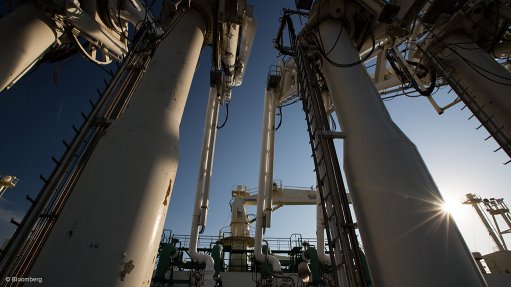
Photo by: Bloomberg
PERTH (miningweekly.com) – Research firm Wood Mackenzie has urged Australia’s oil and gas industry to urgently fast-track the creation of energy “super basins” to provide a pathway to greater sustainability and cut emissions.
Speaking at the Australian Petroleum Production and Exploration Association (Appea) conference in Adelaide, Wood Mackenzie upstream analyst Dr Anne Forbes said that development of super basins in Australia was possible in certain advantaged locations, but will be challenging in the prevailing economic conditions where additional costs can impact profit margins.
“As upstream becomes more entwined with low- and no-carbon businesses, some serious questions are going to be asked of Australian operators,” Forbes told delegates at the event.
“Turning Australia’s vast deposits of disadvantaged gas into a better, and more resilient, investment opportunity is going to require collaboration across the whole energy spectrum, something that has historically rarely happened in the sector.”
Australia has among the highest carbon dioxide (CO2) intensity per barrel of oil equivalent of the major producing countries, coming in at an average 42 t of CO2 per produced 1 000 barrels of oil equivalent. This is caused mainly by the dominance of the liquefied natural gas (LNG) sector in Australia, which utilises an energy-intensive liquefaction process.
“If Australia is serious about creating the next generation of super basins to prolong its upstream lifespan, carbon capture and storage is going to have to play a far larger role in the process and plentiful clean electricity is also essential,” Forbes said.
“This is not going to be easy in the short term, and will require government/policy support - but the fact remains that Australia’s most ‘advantaged’ basins are blessed with world-class solar and/or wind potential.”
Wood Mackenzie’s urging comes just days after an Appea report hypothesised that Net Zero Zones could be created across Australia to boost climate action, jobs and investment.
The report identified nine potential zones, based around existing resources, industrial and manufacturing regions, could be established with shared infrastructure for natural gas, renewables, carbon capture, utilisation and storage technology and low-carbon hydrogen production.